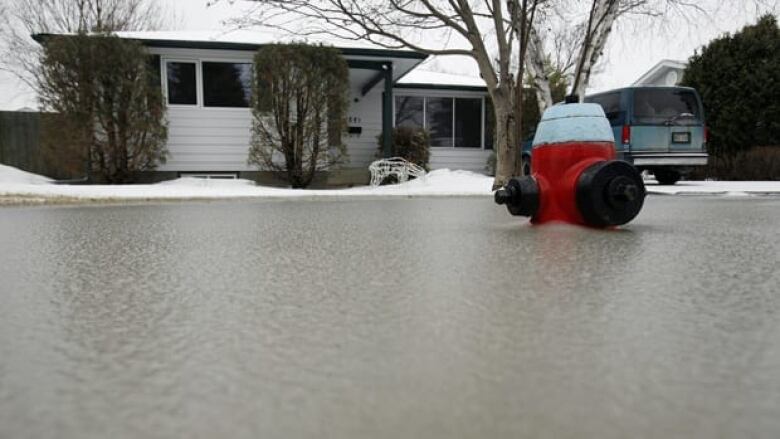3 tips to keep your basement from flooding
While the risk of overland flooding has been downgraded, the City of Winnipeg is still keeping watch

The temperature is rising, the snow is melting and many Manitobansmay be looking at their basement a little warily.
It's the time of year where sump pumps can be a homeowner's best friend.
- Southern Manitoba flood risk down slightly, but southwest remains a concern
- West St. Paul crews battling ice-blocked culverts
The risk of flooding from Manitoba's rivers has been downgraded across much of the province, though there'sstill a risk of major flooding on the Souris River.
The early spring melt helped with the downgrade, getting one flood factor out of the way. But it also saturated the soil, making it less able to absorb runoff from more meltwater or rain.
High river levelsput pressure on the city's sewage systems, because it makes them rely more on pump stations and less on the natural flow and pull of gravity.
"We are watching, we are constantly being vigilant and if there is an issue we will contact the appropriate home owners," saidGeoffPatton, manager of engineering services for Water and Waste.
While people can't control the weather, they can take some preventative measures to curb the impacts of flooding, he said.
1. Clear the water's path away from the property
If the water is coming, Patton said it's best to ensure positive drainage away from homes.
"Make sure that there isn't any settlement of earth or soil around their home preventing water from running away," he said.
Homeowners should keep water directed away from their foundation and check for other problems outside that could stop the flow of water away from the property.
2. Install a sump pump
Homeowners should install a sump pump and a backwater valve to help keep water out of basements, Patton said.
A battery-powered sump pump or a reserve pump on standby is also a good thing for homeowners, he said "because you never know when a failure could occur."
The sump pump reimbursement program was discontinued in 2017 by the city after declining applications, Patton added.
Homeowners are also required to get a permit and a licensed contractor to install any new sump pumps or backwater valves, he said.
3. Annual inspections
The last thing a person would want is to think they've got a working sump pump if water comes only to find out too late that's not the case.
If you have a sump pump you need to make sure to check it out each year, before flooding season, he said.
"Homeowners should do annual inspections of the valve and sump pumps to make sure they are properly functioning and there when you need them," Patton said.












_(720p).jpg)


 OFFICIAL HD MUSIC VIDEO.jpg)
.jpg)



























































































